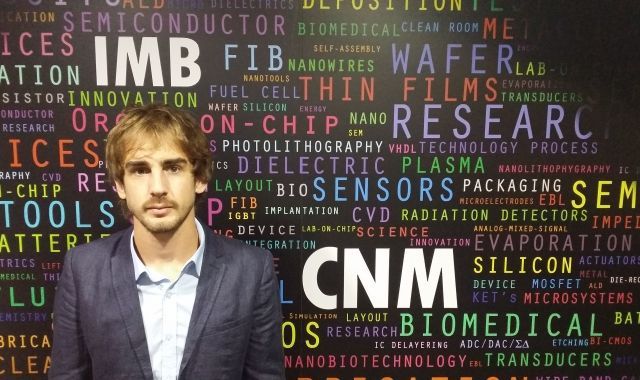
On a passenger plane there are more than 6,000 electronic devices and sensors that need power to work. Maintaining these devices can be very costly for companies due to the large number of cables and batteries they need. But what if the mechanical energy generated by the movement of the plane could be used to power these devices? That is what Gonzalo Murillo, founder of EnergIoT does.
Taking advantage of mechanical energy is one application from the Catalan startup that has companies like Airbus interested. “The idea is to reduce the maintenance associated with batteries and cables transforming mechanical energy into electric power,” says the entrepreneur. Yet, this is not the only application. The sensors designed by EnergIoT are also capable of extracting residual electromagnetic energy from an electrical network to run Internet of Things (IoT) devices.
The startup aims to avoid the cost of maintaining and changing batteries that many electronic devices need
“The advantage compared with other systems is the fact that we eliminate the use of external batteries and we use the energy already available in the environment,” says Murillo. For example, in electrical networks with a large number of sensors that are difficult to get in order to change the batteries, the EnergIoT devices can help a lot.
This technology works with generators of different sizes that can be integrated into any device. “Although, the smaller the generator is, the less energy it can gather,” points out the entrepreneur.
Doctorates that end up in companies
The idea for the project arose through the research that Gonzalo Murillo carried out for his doctorate in 2007 at Barcelona’s Autonomous University (UAB). However, it took a few years, thanks to the Engega programme, organised by the UAB, the Fons Repsol Emprenedores and KIC Innoenergy, for the idea of using environmental energy to become a business idea.
This technology, which is already patented, turned Murillo into the MIT Technology Review’s Innovator under 35 years of age and earned him a place on the Cleantech Camp programme to help entrepreneurial projects in the area of clean energy, organised by Barcelona Activa and InnoEnergy, which he won and was awarded a prize of 20,000 euros.
EnergIoT also works with the Consell Superior d’Investigacions Científiques (CSIC), allowing them to remain close to research. “Even though it is a very industrial project, it has given us contact with companies like Gas Natural or Airbus,” Murillo says.
EnergIoT was a finalist in the second edition of the clean energy programme, Cleantech Camp
Before becoming a company, EnergIoT funded itself with the participation of its founders in European research projects, such as Sinergy or the EnSO project.
Now, the aim of the startup is to find investors to move to the seed stage. “The idea is that in a period of six months or a year we can go from a phase of validating the technology to marketing it,” says Murillo. Moreover, the Catalan startup is currently looking for contacts to find potential clients and companies to work with.